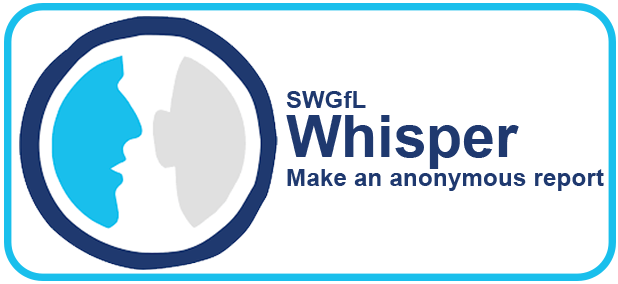Computing
Department Intent
“Everybody should learn to program a computer, because it teaches you how to think.” - Steve Jobs, former CEO and creator of Apple
| Knowledge in Computer Science |
The Computer Science curriculum at Lea Manor High School offers pupils the opportunity to develop their understanding and application of the fundamental principles and concepts of computer science, including abstraction, algorithms, and data representation. It also ensures that pupils can analyse problems in computational terms and have repeated practical experience of writing computer programs in order to solve such problems. The curriculum gives opportunities for pupils to evaluate and apply information technology, including new or unfamiliar technologies, and teaches pupils to analytically solve problems. Our curriculum develops pupils to become responsible, competent, confident, and creative users of information and communication technology. All pupils have the opportunity to study computing in Key Stage 4, where they are taught to develop their capability, creativity, and knowledge in computer science, digital media, and information technology, develop and apply their analytic, problem-solving, design, and computational thinking skills and understand how changes in technology affect safety, including new ways to protect their online privacy and identity, and how to identify and report a range of concerns. Our curriculum intent is:
As a result, the Computing curriculum will:
|
| Curriculum in Computer Science |
The computer Science curriculum at LMHS is balanced and comprehensive to equip pupils with the knowledge, understanding and skills for further study in the subject, it raises aspirations through its insights into different career paths and fields within Computing and Computer Science and contributes to the social mobility of pupils. By the time they leave, pupils will have gained key knowledge and skills in the three main areas of the computing curriculum: computer science, information technology and digital literacy. Pupils will have a greater understanding of ICT and basic computational thinking skills. Whether they study the subject further or not they are knowledgeable, competent and confident users of technology using it safely and respectfully.
The computer science curriculum provides a broad and coherent curriculum which we hope is engaging and enjoyable. All pupils at KS3 have a 1-hour timetabled session. At KS4 pupils are given the option to continue with their learning and work towards achieving a GCSE in Computer Science.
Assessment at the examination stage takes place through a variety of tasks. There is always an exam styled assessment at the end of the topic, giving pupils an opportunity to reflect on their progress and receive support on how to improve. There will be an emphasis on developing literacy linked to computer science to support students in acquiring the skills needed for the extended writing questions. GCSE exams will be taken at the end of Year 11. There are 2 written examinations, these will be used to grade them on their knowledge and application of the subject. |
| Teaching and Learning in Computer Science |
The Computer Science curriculum at LMHS equips pupils with the knowledge, understanding and skills for further study in the subject, it raises aspirations through its insights into different career paths and fields within Computing and Computer Science and contributes to the social mobility of pupils. By the time they leave, pupils will have gained key knowledge and skills in the three main areas of the computing curriculum: computer science, information technology and digital literacy. Pupils will have a greater understanding of ICT and basic computational thinking skills. Whether they study the subject further or not they are knowledgeable, competent and confident users of technology using it safely and respectfully.
Demonstrate knowledge and understanding and application of the key concepts and principles of Computer Science
To design, program, evaluate and refine solutions.
|
| Assessment in Computer Science |
Learning is assessed in some of the following ways in lessons:
Assessments are used to evaluate and monitor pupil understanding and progress in the classroom. Year 10s will sit PPEs at the end of year 10 and Year 11s will sit PPEs in November, January, February and March. |
| Learning Beyond the Classroom in Computer Science |
Curriculum impact is assessed in the following ways:
|
Curriculum Journey
| Autumn 1 | Autumn 2 | Spring 1 | Spring 2 | Summer 1 | Summer 2 | |
| 7 | Digital World | Algorithms/ Flowcharts to Programming Essentials |
Modelling Data using Spreadsheets |
Programming with Scratch | Programming with hardware - Microbits | Using Media Project |
| 8 | Digital World | Climate Action Project | Making a Climate App | From Scratch to Python | Web Design using HTML | Using Media Project |
| 9 | Hardware to Networks | Algorithms to Python Programming | Python Projects | Data Representation | Web Design using HTML | Making an App Project |
| 10 |
Systems Architecture Programming with Python |
Memory and Storage/Networks Programming with Python |
Network connections and protocols
Programming with Python |
Network Security/Ethics Programming with Python |
System Software/Ethics Programming with Python |
Database and SQL Programming with Python |
| 11 |
Data structures and Algorithms Programming with Python |
Programming fundamentals/ Robust programming concepts | Data Representation/Revision |
Programming Languages Programming with Python |
Recap and Revision | Year 11 Exam Season |
Curriculum Overview
- 1 Year 7 Computing Curriculum Overview
- 2 Year 8 Computing Curriculum Overview
- 3 Year 9 Computing Curriculum Overview
- 4 Year 10 Computing Curriculum Overview
- 5 Year 11 Computing Curriculum Overview


